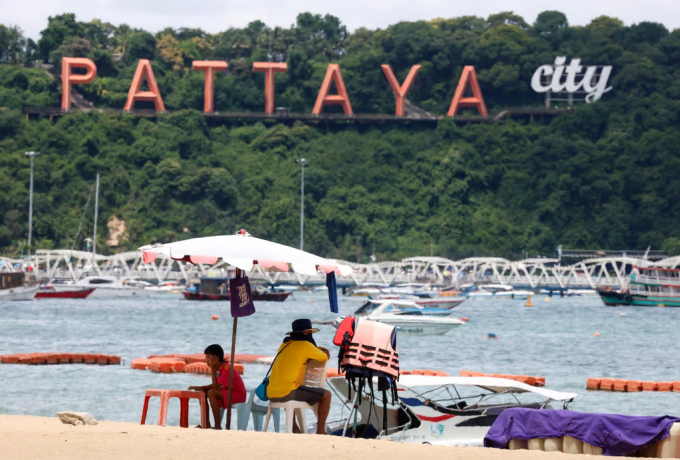
Standing at Gardens by the Bay, a popular tourist destination in Singapore, 24-year-old Chinese tourist Sun Shiqi said this was her first time traveling internationally. Singapore's visa-free policy for Chinese citizens made everything easier for Sun. "I just need my passport," the university graduate said, recounting her four-day trip with her friends.
Since February, Chinese tourists have been able to visit Singapore visa-free and vice versa. The visa relaxation policy, which began late last year, has become a wave spreading across Southeast Asia, where many countries are trying to revive tourism after Covid-19.
India, Russia and China are the tourist markets that will benefit most from the visa relaxation plan in Southeast Asia. Many said they are attracted by the convenience and lack of administrative barriers.
For Sun, Singapore was a natural choice: safe, clean and home to her favorite singer, JJ Lin (Lam Jun Kiet). Sun felt great that although she was not fluent in English, she could still communicate well in Singapore using Mandarin.
In other tourist hotspots such as Phuket, Thailand and Bali, Indonesia, hotel occupancy rates are soaring to pre-pandemic levels in 2019. Flights have resumed to many second- and third-tier Chinese cities and package tours are restarting. Indian tourists, known for their purchasing power and lavish weddings, are flocking to both destinations. Meanwhile, Russian tourists are also heading to Southeast Asia.
However, there is a downside to everything. The surge in visitors, who are not screened by visa policies as before, has also raised alarm about potential criminal elements infiltrating Southeast Asian countries.
In Singapore, reports of illegal activities such as theft, break-ins and crimes are increasing, prompting authorities to monitor more closely.
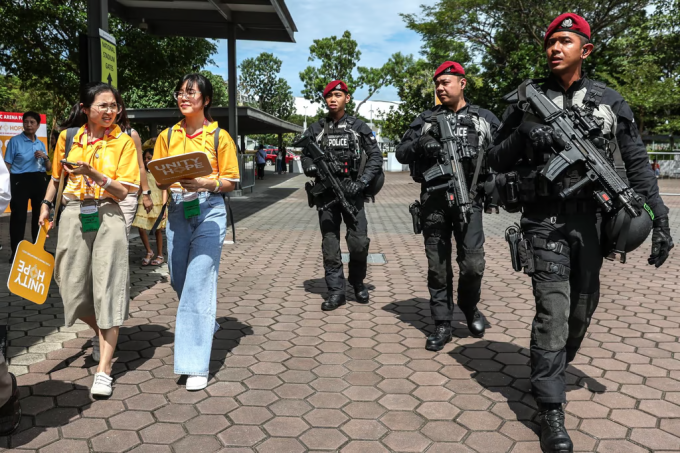
In August, three Chinese nationals were charged with breaking into homes in Singapore. Authorities said they were working with partner travel agencies in China to track down 14 more suspects, who are believed to have left Singapore after committing the crimes.
"No visa policy can completely eliminate unwanted visitors," Singapore's Home Affairs Minister Sun Xuelin said in early August in response to a parliamentary question about the rising crime rate since the visa exemption was introduced. Xueling added that even with the 14 Chinese on the run, the rate of Chinese apprehensions in Singapore this year is still lower than the same period last year.
The minister said the only way to stop crime was to "close the borders", but this would destroy the country's economy .
However, Singaporeans are also starting to get frustrated with overtourism. According to a study by the National University of Singapore, the recent influx of Chinese tourists has disrupted classes, forcing schools to implement measures to manage the large crowds.
"This is a case of overtourism," Suen said. However, he still affirmed that this overtourism is not as extreme as destinations in Japan and Bali.
According to the Singapore Tourism Board, international arrivals in 2023 will mainly come from Indonesia, China, and Malaysia, with 2.3 million, 1.4 million, and 1.1 million arrivals, respectively. Chinese visitors are the biggest spenders, spending about $1.8 billion, followed by Indonesian and Australian visitors, with $1.7 and nearly $1.2 billion.
In Thailand, authorities raided a luxury villa in Chonburi province and arrested 15 foreign scammers who had come here under visa-free entry. Russian tourists are also being targeted by the government, who are suspected of setting up illegal businesses on Thai soil.
In Phuket, residents lament soaring land prices and rising rents as international visitors surge, with businesses ranging from taxis to hair salons increasingly catering to this new, wealthy clientele, rather than the local population.
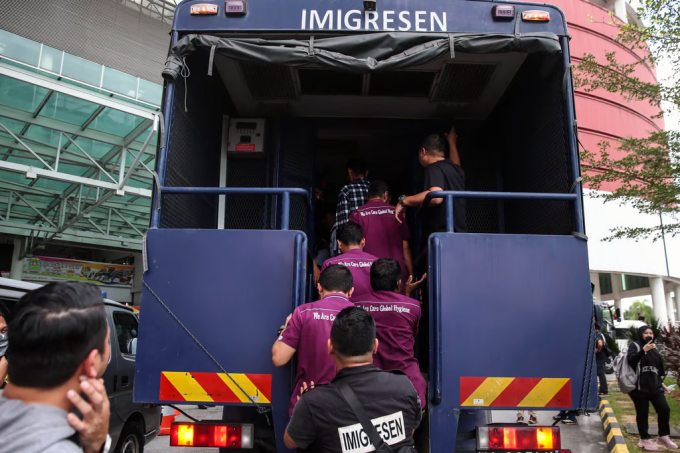
Similar grievances are being voiced in Bali. However, despite the challenges, both destinations are still aiming to attract as many visitors as possible as tourism brings in billions of dollars into the economy.
In front of the historic Masjid India mosque in Kuala Lumpur, Malaysia’s capital, bookstore owner Erfan Ghani said many foreigners initially visited the area as tourists. Now, they are staying longer, changing the identity and cohesion of the area. They come for tourism reasons but stay to work illegally, Erfan said.
The problem of tourists arriving and overstaying their visas is growing in Malaysia, a country heavily dependent on cheap labor from Bangladesh and Indonesia. At an apartment complex on Jalan Masjid India, Bangladeshi restaurant owner Muhammad Ibrahim confirmed that it was “normal” for tourists to stay and work illegally.
Statistics from the Malaysian government show that from 2020 to 2023, more than 13,000 foreigners were arrested for overstaying their visas. Malaysia is considered one of the most open countries to international visitors, requiring only more than 30 countries in the world to apply for a visa. However, this leniency also has its limitations.
In a late August raid on resorts in Sabah state, authorities arrested 61 Chinese and Filipino men for working illegally. They were supposed to leave Malaysia in May but stayed until August.
On September 4, the Malaysian Anti-Corruption Commission said that 46 civil servants working at Kuala Lumpur International Airport were suspected of being "part of a network that facilitated the entry of foreigners".
Ramlan Arshad, a border and migration expert at Mara University of Technology in Kuala Lumpur, said the government needs to strictly control the borders and only genuine tourists should be allowed into the country.
“If not properly controlled, Malaysia will become a mecca for illegal workers,” Arshad said.
TH (according to VnExpress)Source: https://baohaiduong.vn/mat-trai-cua-chinh-sach-mien-visa-hut-khach-tai-dong-nam-a-393342.html



![[Photo] Keep your warehouse safe in all situations](https://vphoto.vietnam.vn/thumb/1200x675/vietnam/resource/IMAGE/2025/10/1/3eb4eceafe68497989865e7faa4e4d0e)
![[Photo] President of the Cuban National Assembly visits President Ho Chi Minh's Mausoleum](https://vphoto.vietnam.vn/thumb/1200x675/vietnam/resource/IMAGE/2025/10/1/39f1142310fc4dae9e3de4fcc9ac2ed0)


![[Photo] Hanoi morning of October 1: Prolonged flooding, people wade to work](https://vphoto.vietnam.vn/thumb/1200x675/vietnam/resource/IMAGE/2025/10/1/189be28938e3493fa26b2938efa2059e)




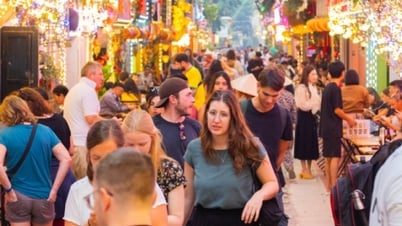




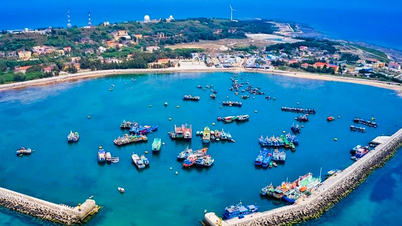














































































Comment (0)